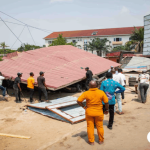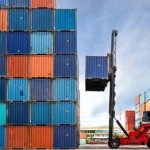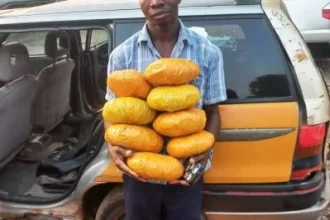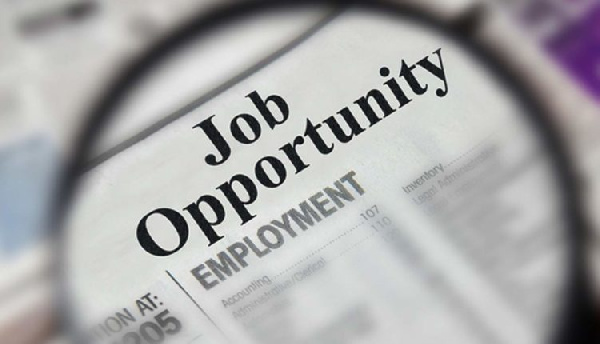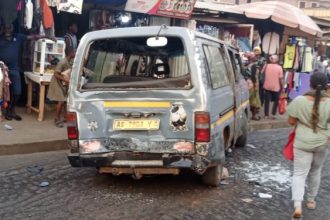Members of the public could receive the second dose of the Oxford AstraZeneca Covid-19 vaccine beginning May 19.
Close to 900,000 individuals had to wait to complete the vaccination process after the vaccine shortage in Ghana.
After receiving 350,000 doses of the AstraZeneca vaccines as part of the WHO COVID-19 Vaccine Global Access Facility (COVAX) on May 7, vaccination is scheduled to continue.
The vaccines from DR Congo are part of the initial 600,000 doses received on February 24.
Individuals from 43 selected districts across the country who formed segmented groups can visit health facilities for the jabs.
Frontline health workers, adults of 60 years and above, frontline government officials, media practitioners, frontline workers in the formal sector and persons with underlining health conditions are the target.
The delay was due to the skyrocketing COVID-19 cases and deaths in India, which serves as the primary source of many global vaccine manufacturers.
Lockdowns, shutdowns, rising infections among the workforce amidst high demand for vaccines in the populous nation meant a shortage of supplies to other countries.
Chief Director of the Ministry of Health, Mr Kwabena Boadu Oku-Afari, received the vaccines on behalf of the government.
“The consignment, which is under the Covax facility, arrived from DR Congo through Istanbul on a Turkish Airline,” the Ministry of Health said in a Tweet.
Ghana began the vaccination exercise on March 2, and the government expects to take delivery of 2 million AstraZeneca vaccines by the end of May.
Meanwhile, Ghana’s quest for a local vaccine continues.
Leading the charge is Professor Kwabena Frimpong Boateng, a physician and cardiothoracic surgeon who established the National Cardiothoracic Center and the Ghana Red Cross Society.
President Akufo-Addo appointed him to explore the development of a local remedy for the COVID-19.
Ghana’s drive for local vaccine comes after several calls for African countries to invest in the research and development of vaccines.
John Nkengasong, Director of the Africa Centres for Disease Control and Prevention (CDC), a public health agency of the African Union, had said that African countries must invest in the development of vaccines.
He wants advancement on the continent in areas including the manufacture of vaccines, diagnostics, and medicine, among others.
This, he believes, will considerably reduce dependence on other countries.
Presently, Africa depends on foreign countries and imports more than 99% of its vaccines and therapies.
Every year, infectious diseases cost the lives of more than 227 million people and produce an annual economic toll of more than $600bn.
Which countries are involved in COVID-19 vaccines
Several countries launched research into COVID-19 vaccines, but few are widely accepted.
The Pfizer–BioNTech COVID‑19 vaccine sold under the brand name Comirnaty was produced by a collaboration between German firm BioNTech in collaboration with US pharmaceutical giant Pfizer.
Moderna COVID-19 Vaccine, codenamed mRNA-1273, is a COVID-19 vaccine developed by the United States National Institute of Allergy and Infectious Diseases (NIAID), the Biomedical Advanced Research and Development Authority (BARDA), and Moderna.
The Oxford/AstraZeneca was co-invented by the University of Oxford together with AstraZeneca plc is a British–Swedish multinational pharmaceutical and biopharmaceutical company with its headquarters in Cambridge.
Sputnik V, another effective COVID-19 vaccine, was developed by the Gamaleya Research Institute of Epidemiology and Microbiology and registered by the Russian Ministry of Health as Gam-COVID-Vac.
China, where the COVID-19 infection emerged, has approved two vaccines.
Sinopharm developed one, and Sinovac manufactured the other. There are at least 15 other vaccines under development in China.
India has also released its first Indigenous COVID-19 Vaccine known as Covaxin.



